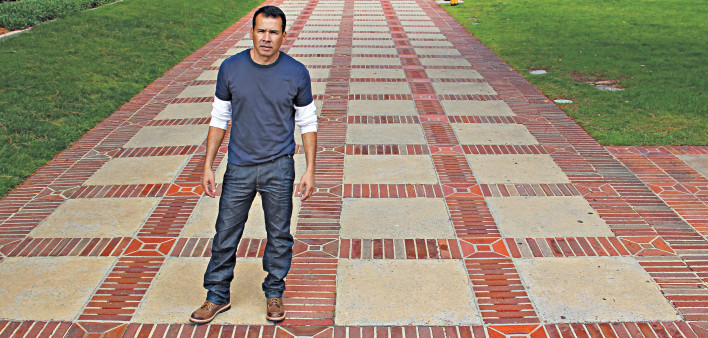Attention Latino immigrants living with HIV in the United States: Marco Castro-Bojorquez wants you to get involved in creating a new national network to help amplify the voices of your community.
“A lot of the publications, tools and methodologies used to deal with HIV/AIDS in the United States are not culturally appropriate,” Castro-Bojorquez says. Originally from Mexico, the queer documentarian has been living with HIV and advocating for people like him over the past 15 years.
HIV is a big issue among Latinos. The CDC estimates that the rate of new HIV cases among Latinos is three times higher than among non-Hispanic whites—and is particularly high in young immigrants, who often have limited access to health care and face language or cultural barriers.
Castro-Bojorquez knows those barriers well. He moved to San Francisco from his home country in the 1990s, in search of political and social asylum.
He started out using his skills as a filmmaker to support himself. After he was diagnosed with HIV in 2000, he began working in the nonprofit sector, specifically around youth development projects in San Francisco’s Castro neighborhood.
It was during this time that Castro-Bojorquez began noticing some distinct challenges Latinos experience in navigating HIV/AIDS. “One of the issues we have is that we don’t want to give our parents more trouble. A lot of them really struggled to come to this country. They worked three jobs, sacrificed so much for us, that when we realize we are queer or lesbian or gay, we feel guilty and end up negotiating our identities from school to home.”
This sense of duality and secrecy, says Castro- Bojorquez, is perpetuated by stigma from machismo culture and religion. Combined, these forces often create the perfect storm for HIV and make it difficult for Latinos to seek care once diagnosed. For an in-depth look at these issues, check out two of Castro- Bojorquez’s films—Tres Gotas de Agua, or Three Drops of Water (2011), which speaks with Latina mothers and their LGBTQ children, as well as an upcoming film titled El Canto del Colibri, or The Hummingbird Song, in which Latino dads weigh in.
Castro-Bojorquez is now a community educator at Lambda Legal, a national LGBT and HIV advocacy group, where he works mostly with young people, educating them about HIV policy issues. In fact, his idea for this new national network for Latino immigrants living with HIV was inspired by his job.
A meeting planned for this fall, funded by the Sero Project, will bring dozens of Latino advocates together to develop a strategy for the policy-making group. As this issue of POZ goes to print, Castro-Bojorquez says the location and dates are still to be determined, as is the group’s name.
“I purposely don’t want to put a direction on it because I think it will be far more beautiful if people come together to make it happen,” Castro-Bojorquez says. “We are from Latin America, we are immigrants, and our realities are complex.”

Marco Castro-Bojorquez Jose Alfaro






1 Comment
1 Comment